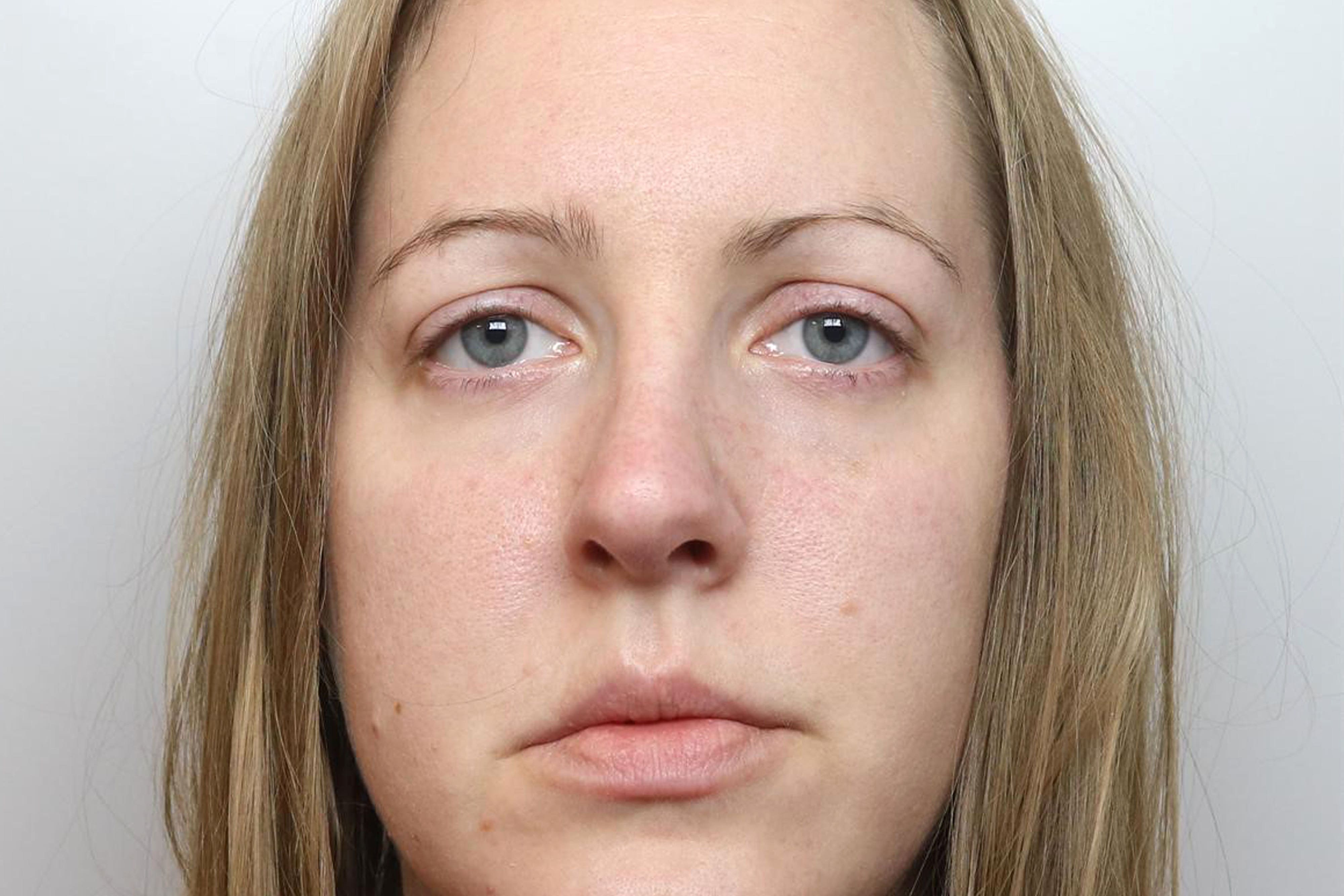NHS whistleblowing: Health workers ask to join Lucy Letby inquiry
One of the country’s most senior judges, Lady Justice Thirlwall, is leading the inquiry into the killer nurse’s actions.

Your support helps us to tell the story
From reproductive rights to climate change to Big Tech, The Independent is on the ground when the story is developing. Whether it's investigating the financials of Elon Musk's pro-Trump PAC or producing our latest documentary, 'The A Word', which shines a light on the American women fighting for reproductive rights, we know how important it is to parse out the facts from the messaging.
At such a critical moment in US history, we need reporters on the ground. Your donation allows us to keep sending journalists to speak to both sides of the story.
The Independent is trusted by Americans across the entire political spectrum. And unlike many other quality news outlets, we choose not to lock Americans out of our reporting and analysis with paywalls. We believe quality journalism should be available to everyone, paid for by those who can afford it.
Your support makes all the difference.A group representing hundreds of health workers has asked to contribute to the Lucy Letby inquiry, saying there is a need to challenge NHS culture around whistleblowing.
NHS Whistleblowers, a support group made up of current and former doctors, midwives and nurses, said workers should able to give evidence regarding an NHS “culture detrimental to patient safety”.
Letby, of Hereford, was sentenced to 14 whole life orders after she was convicted of murdering seven babies and attempting to murder six others, with two attempts on one of her victims.
The offences took place at the Countess of Chester Hospital’s neonatal unit, where Letby worked, between June 2015 and June 2016.
One of the country’s most senior judges, Lady Justice Thirlwall, is leading the inquiry into how the nurse was able to murder and how the hospital handled concerns about her.
They are experts in their fields who have seen things go wrong first-hand
Now, NHS Whistleblowers has instructed Hudgell Solicitors to represent it, arguing there is a need to look at problems across the entire health service, not just in one trust.
Hudgell chief executive Rachel Di Clemente said: “This group of health professionals has come forward with no agenda other than making a positive change across our health service in terms of improving patient safety.
“They are requesting the opportunity to be given a platform at an inquiry of huge national importance to speak collectively as a voice of experience.
“They are experts in their fields who have seen things go wrong first-hand.
“Since the Francis Report in 2015, following the Mid Staffordshire NHS Foundation Trust Public Inquiry, there has been a series of investigations into NHS trusts around patient safety where it has been revealed NHS staff have either been too scared to speak up or punished for speaking up.
We feel that the fitness to practise process is being weaponised to silence whistleblowers and to punish those who have continued to escalate concerns
“Lessons have clearly not been learned and we feel it is imperative that this group be involved in the Thirlwall Inquiry, particularly to help examine whether suspicions could have been raised earlier, whether Letby should have been suspended earlier, and how the management responded to concerns raised about her.
“The evidence of this group relating to how whistleblowers are treated, not just at one trust, but across the UK, is of huge significance.”
The group said a recurring theme across NHS trusts is senior managers placing “reputational damage limitation ahead of patient and staff safety”.
NHS Whistleblowers says it has more than 1,600 members, many of whom were dismissed after facing employment tribunals, some who resigned after their concerns were ignored, and some who are still working in the NHS.
Cathryn Watters, founder and director of NMCWatch, which represents nearly 600 nurses and midwives and is part of the group, said: “Many of our group have been whistleblowers or have raised serious concerns in their workplace to find they are referred on spurious grounds, often with no basis or evidence of minor issues that could have been dealt with at employer level.
“We feel that the fitness to practise process is being weaponised to silence whistleblowers and to punish those who have continued to escalate concerns.
NHS staff who have bravely spoken up about patient safety concerns or unethical practices deserve to have their voices heard and experiences carefully examined
“Healthcare regulators must get better skills to unpick this and assure further patient harm is not being risked in pursuit of such cases.”
Dr Matt Kneale, co-chairman of Doctors’ Association UK, which is also part of the group, said: “NHS staff who have bravely spoken up about patient safety concerns or unethical practices deserve to have their voices heard and experiences carefully examined.
“By granting NHS Whistleblowers core participant status, the inquiry can ensure it has direct access to the perspectives of those on the front lines who have witnessed troubling practices first-hand.
“Such evidence is vital for understanding the full scope of the problems and informing reforms to better support whistleblowers and safeguard patient care across the NHS.”